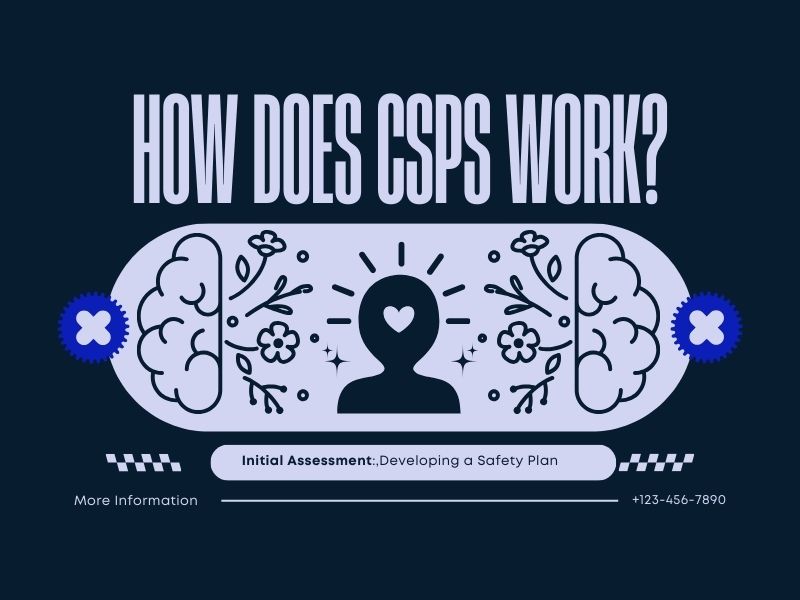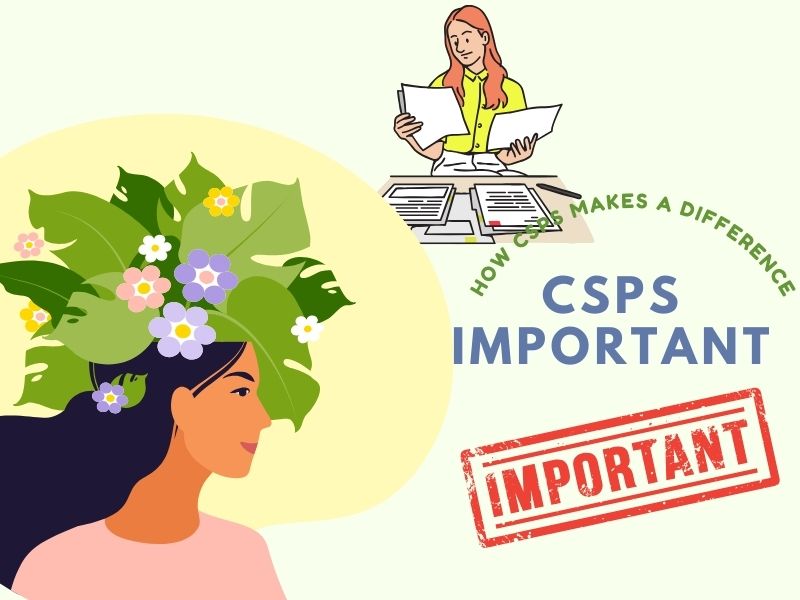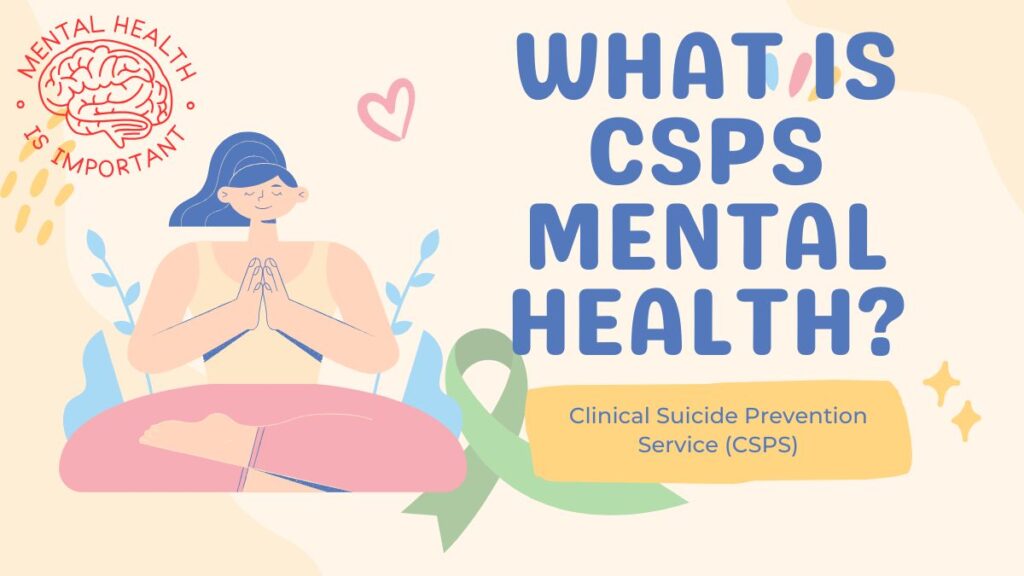CSPS mental health when descussing, we think about therapy, support groups or talking with a genuine friend. But what if there was a specialized service made to order for those moments when life feels like it’s voluting out of PRT Control? Enter the Clinical Suicide Prevention Service (CSPS) – a lifeline for people in need. Understanding the CSPS is essential not just for those finding help but also for their friends, families and the larger community who wish to support them.
What is the Clinical Suicide Prevention Service (CSPS)?
CSPS is a program especially designed to offer free therapy and support to those who are suffering from suicidal thoughts or have endured a suicide attempt. Unlike general mental health services, CSPS concentrates directly on providing the tools and instructions that help people recoup a sense of control and safety in their lives.
Who is CSPS For?
CSPS mental health serves to people aged 12 and older who are facing suicidal thinking or have formerly attempted suicide. The program is ideal for people who are not in instant danger but need consistent, specialized support. For instance, imagine a teenager who feels frequently overwhelmed by academic pressures and feelings of self-harm. CSPS can be a custom made support system that helps them guide through this difficult phase.
If you or someone you know fits any of the following criteria, CSPS may be the right fit:
- Recently attempted suicide and needs continuous support.
- Regularly encounter with suicidal thoughts and feels at a loss for how to confront
- Sought help from a doctor for mental health issues linked to suicidal thinking.
It’s crucial to note that for individuals aged 12 to 15, parental or guardian consent is mandatory to access this service.
How Does CSPS Work?

The CSPS program is based around short-term, focused psychological attacks trimmed to each individual’s needs. Here’s what you can expect from the process:
- Initial Assessment: After being sponsored by a doctor or local mental health service, you’ll get an initial assessment where clinicians will try to understand your history, current struggles, and immediate concerns.
- Developing a Safety Plan: Your clinician will work with you to create an individualized plan designed for improving your sense of safety. This step involves identifying specific activators and outlining actionable steps to manage them efficiently.
- Ongoing Support and Tools: You will learn coping techniques that help you handle future challenges. These may include relaxation skills, journaling cues, or structured routines to nourish well-being.
Anecdote: Consider Sarah, a 17-year-old high school senior who battled silent pain for months before her parents realized she needed help. Through CSPS, she worked with her clinician to create daily routines and crisis response plans that helped her regain her footing and believe in herself once again.
How to Access CSPS
Accessing CSPS begins with talking to a medical professional or a local mental health service. Your doctor will fix your situation to see if the service is suitable for you. If it seems suitable, they will refer you to CSPS, and you can anticipate someone from the program to reach out within 24 hours during business days.
For healthcare sources looking to refer patients, there is an easy-to-use referral system through the South Western Sydney PHN Mental Health Central Intake. Any cooperation required for the referral process can be addressed by contacting SWSPHN Mental Health Central Intake at 1300 797 746.
Where is CSPS Delivered?
Currently, CSPS is available all over South Western Sydney, making it a regional service with a significant impact. The reach of this program is meaningful for those living in areas where mental health resources might be bounded or harder to access.
The Cost of CSPS
One of the most encouraging aspects of CSPS is that it’s completely free. This initiative is paid by the South Western Primary Health Network, assuring that financial hurdles do not nullify someone from accessing potentially life-saving support.
Why is CSPS Important?

CSPS is more than just another mental health service; it represents a proactive procedure to suicide prevention. The targeted, specialized support aims to provide people with the tools they need before a crisis becomes uncontrollable.
Imagine a young adult like James, who found himself drawing back from friends and family, blistered by thoughts of hopelessness. When he was referred to CSPS, he not only received immediate support but also learned coping strategies that helped him reconnect with his life and dreams.
How CSPS Makes a Difference
- Immediate Response: By reaching out within 24 hours of referral, CSPS guarantee that help is timely, which is crucial in foreboding further distress.
- Personalized Care: The service customizes its support plan based on each person’s unique situation and needs.
- Empowerment: Beyond immediate support, CSPS teaches individuals how to build resilience, providing them with lifelong tools to manage stress and challenges.
Conclusion
Mental health, and specifically suicide prevention, is an area that is responsible for specialized attention. Programs like CSPS play a crucial role in filling the gap, offering hope and a path forward to those who need it most. By understanding services like CSPS, we become better at providing support to our communities and ourselves.
If you or someone you know is struggling, don’t hesitate to speak with a medical professional about CSPS. Taking that first step can be confronting, but it can also be the beginning of healing and hope.
Check out related blog on Khosha Yoga Moma to see how integrating yoga practices can complement mental wellness strategies and support a balanced and healthy lifestyle.

